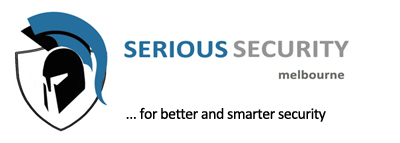The pharmaceutical industry is a cornerstone of healthcare, responsible for research, development, and manufacturing of life-saving drugs and treatments. Securing this critical sector is essential, as it involves protecting valuable research, sensitive data, and high-value products. Electronic security systems play a crucial role in pharmaceutical security, ensuring the success and reputation of pharmaceutical companies.
CCTV Surveillance: Monitoring Laboratories and Facilities
CCTV (Closed-Circuit Television) surveillance is a foundational component of electronic security in the pharmaceutical industry. Surveillance cameras are strategically placed throughout laboratories, manufacturing facilities, and warehouses, offering real-time monitoring and serving as a visual deterrent to potential security threats.
CCTV cameras also provide crucial footage for incident investigation and evidence collection. These systems contribute to maintaining the safety and security of valuable research and pharmaceutical products.
Real-Life Example: Laboratory Surveillance
In a pharmaceutical research laboratory, CCTV cameras are discreetly positioned to monitor sensitive experiments and valuable data. These cameras deter unauthorized access and provide visual records of experiments. In case of a breach, the recorded footage can be used to identify and address the incident.
Access Control Systems: Limiting Access to Sensitive Areas
Access control systems are indispensable for securing pharmaceutical facilities. These systems restrict access to laboratories, storage areas, and manufacturing zones, allowing only authorized personnel to enter. Access control enhances security by preventing unauthorized access to high-value products, sensitive data, and confidential research areas.
These systems also provide an audit trail, recording who enters and exits secure areas, aiding in accountability and compliance.
Real-Life Example: Secure Storage Facility
In a pharmaceutical storage facility, access control systems are in place to restrict entry to authorized personnel only. Employees must use electronic keycards or biometric authentication to access the facility, ensuring the integrity and security of valuable pharmaceutical products.
Alarm Systems: Immediate Response to Security Incidents
Alarm systems are a crucial element of electronic security in the pharmaceutical industry. These systems are designed to provide immediate alerts in response to security breaches, unauthorized access, fire emergencies, or other critical incidents.
The rapid response enabled by alarm systems allows security teams to address security incidents promptly, mitigating potential threats and protecting valuable products and research.
Real-Life Example: 24/7 Monitoring
In a pharmaceutical manufacturing facility, alarm systems are integrated with motion detectors and environmental sensors. If an unauthorized entry or environmental anomaly is detected, the alarm system immediately alerts the security team, ensuring the swift response required to protect sensitive production processes and high-value pharmaceuticals.
Data Security: Protecting Intellectual Property
In the pharmaceutical sector, data security is critical, given the sensitivity of research and the importance of safeguarding intellectual property. Protecting research data and ensuring secure access is vital, making electronic security measures such as encryption, access control, and network security essential.
These measures help maintain the confidentiality and integrity of research data, protecting it from unauthorized access or cyber threats.
Real-Life Example: Data Encryption
A pharmaceutical company employs robust data security measures to protect its research data. This includes end-to-end encryption of sensitive research findings and intellectual property. By encrypting the data, the company ensures that its research remains confidential and secure.
In conclusion, electronic security systems are essential for safeguarding the pharmaceutical industry, protecting valuable research, sensitive data, and high-value products. Whether it’s monitoring laboratories, restricting access to secure areas, facilitating rapid responses to security incidents, or protecting intellectual property, these systems are fundamental in maintaining the success and reputation of pharmaceutical companies.
